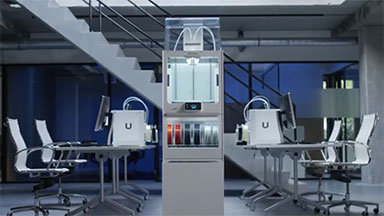
Simcenter STAR-CCM+ 2302 has new capabilities that let users work faster while modeling the complexities. Image courtesy of Siemens Digital Industries Software.
Latest News
February 24, 2023
With the new STAR-CCM+ 2302 from Siemens Digital Industries Software, users can model the complexity of battery thermal runaway with ease. Run more cost- and energy-efficient computational fluid dynamics (CFD) simulations thanks to ARM64 CPU support and graphics processing unit-enabled acceleration. Speed up CFD simulations with the SIMPLEC scheme, according to Siemens. Document, share, and review detailed model information within the CFD software.
Simcenter STAR-CCM+ 2302 has new capabilities that let users work faster while modeling the complexity.
Battery Thermal Runaway Setup
With the growth of electric vehicles on the roads, new safety rules have been put in place at the country level but also internationally with new UN safety rules regarding the use of Li-ion batteries.
In Simcenter STAR-CCM+ 2302 the company has released a dedicated workflow to accelerate the setup time of thermal runaway propagation simulations for batteries from hours down to minutes, according to the company. Thanks to a focused workflow users can handle large packs of hundreds or thousands of cells while retaining high modeling fidelity, Siemens adds. The workflow supports the simulation of a “failed” cells’ exothermal heat release with an empirical model and can be accessed as part of the Simcenter STAR-CCM+ Batteries add-on.
Modeling of Motion
Store separation, valves, dip coating and other applications involve moving bodies, with small gaps together with complex fluid dynamics. To simulate complex applications with CFD, overset meshing technology together with Adaptive Mesh Refinement (AMR) has become key .
With Simcenter STAR-CCM+ 2302 users can run such cases through an automatic refinement of the overset region to match the refinement level of the background region. Small gap scenarios can guarantee valid meshes and ensure convergence without additional user effort, according to the company.
Model Applications Involving Drying
Many applications in the chemical processing, mining, steel, food and battery manufacturing industry involve drying of wet solids. The CFD simulation of such systems requires a precise prediction of particle motion and respective phase-change phenomena.
In Simcenter STAR-CCM+ 2022.1, the company introduced the Liquid-Solid-Gas material for Lagrangian non-DEM particles allowing to apply evaporation modeling for droplets containing solid materials.
With Simcenter STAR-CCM+ 2302 the company extends the capability to Discrete Element Method (DEM) particles allowing to apply evaporation models to DEM phases. This enables users to model new applications involving drying solid materials where DEM is the particle-dynamics method of choice by enabling evaporation of liquid components in DEM particles.
Users can accurately simulate drying processes in direct, convection-based dryers like drum dryers, spray dryers, fluidized bed dryers or indirect conduction-based dryers using the discrete element method for the wet solid phase, according to Siemens.
This product release also features new highlights in ARM support; faster simulations on GPUs; multiphase simulations; access to simulation information; and much more. Click here for more details.
Sources: Press materials received from the company and additional information gleaned from the company’s website.
More Siemens Digital Industries Software Coverage
Subscribe to our FREE magazine, FREE email newsletters or both!
Latest News
About the Author
DE’s editors contribute news and new product announcements to Digital Engineering.
Press releases may be sent to them via [email protected].





